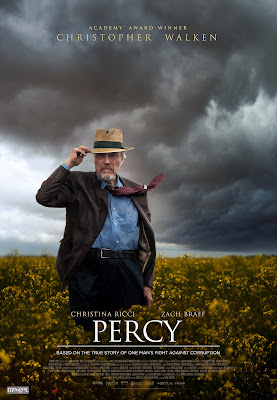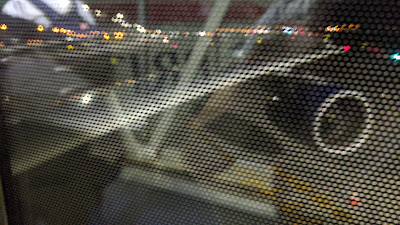Today,
as advertised, the
UMass Law Review hosted a
symposium on media law. The program videos are all
on Facebook Live. Check
my Twitter feed for hot links to speakers' handles. Three panels were organized by media
"platform," from politics to digital to entertainment, raising issues
from the investigative journalism to data breach law to streaming music
copyright.
The program concluded with a
keynote address by Richard P. Flaggert, a DLA Piper media attorney. Here are some highlights:
After a thoughtful welcome by UMass Law Dean Eric Mitnick, UMass Law Professor Jeremiah Ho started the program with
a discussion of why media matter. The
problem of law and policy, he said, is the gulf between "what
matters" and "what excites us," with the media business model tending to
cater to the latter. Professor Ho is a co-adviser of the UMass Law Review.

Kicking off the first panel of the day, Rep. Christopher Markey, New Bedford, Mass., attorney, Commonwealth legislator, and UMass Law alumnus, gave the political perspective. Money has distorted news from being an educational tool to being entertainment, he explained. People must be media literate to elicit truth from what they see, hear, and read. Recalling his years as a district attorney, Markey said that attorneys and judges were "better" when a beat reporter was sitting in the courtroom, that journalism "makes government better." But those beat reporters are no longer there.

Jillian Fennimore provided her perspective from inside the busy office of Massachusetts Attorney General Maura Healey. A journalism graduate of the University of New Hampshire with many years experience in media, Fennimore explained the challenge of making the work of the state's law office intelligible and meaningful to citizens, whether the subject matter is investigation of the opioid crisis, antitrust enforcement, or protection of a consumer whose vacuum cleaner broke. AG Healey cares about all of these things because she understands that these are things people care about, Fennimore said. My Torts II class has been looking at the impact of the Healey opioid investigation on the crisis and litigation nationwide.

Peter Ubertaccio, a dean and political scientist at Stonehill College, gave an academic perspective on news and media law. Those of us of a certain age remember the local TV news anchors of our youth, he observed. That is not true for our children. Journalism today is "atomized," lacking the "rhythm" of television before the information age, even if the internet is "democratiz[ing]." There is more content available through more conduits than ever before, Ubertaccio explained, yet there is less availability of accurate information. We are entering a golden age of television entertainment while at the same time entering a dark age of information, he said. Incidentally, yes, I remember my anchors. And I was privileged to have worked with Baltimore's great Al Sanders for a short time before he passed away.

A star of the first panel was Dee DeQuattro, UMass Law alumna, staff attorney for Operation Stand Down Rhode Island, and creator of the Boots on the Ground Heroes Memorial. DeQuattro talked about her experiences in radio and television, most recently as an assignment manager for ABC6 News in Providence, Rhode Island, then her transition to a public relations and later legal capacity for the veterans organization, Operation Stand Down. DeQuattro went to journalism school to hold power accountable in the tradition of Woodward and Bernstein, she said. But "news doesn't work that way anymore," as bottom-line focused detracted from serious political reporting. After covering the Boston Marathon bombing, she went to law school. She still uses her familiarity with news media, driven by money savings and visual imagery, to manage public affairs in her nonprofit work.

Law Review co-adviser Professor Dwight Duncan moderated the second panel, on digital media. Professor Andrew Beckerman-Rodau of Suffolk Law School and the Intellectual Property Center opened with a comprehensive overview of data protection, including data breach and Big Data analytics, in American law today.
Attorney Hollie Lussier of Bristol County Savings Bank told the audience about the large role data protection and privacy play in legal practice today, especially in the financial sector. She warned attorneys to consider insurance liability limits, as $100,000, she said, won't cut it. She cited a recent case of a "small" data breach that nevertheless generated a $140 million loss. The breach could have been prevented, she said, with a $10,000 "penetration test." Making matters more hazardous, she explained, many insurance policies will not cover consequential damages, which make up most of that mega-million loss.

Rhode Island attorney and legislator Stephen Ucci concurred on the importance of data protection to contemporary practice. He referenced a recent in case in which only 300 records were exposed. Despite seemingly straightforward facts, the exposure of data has different implications for each data subject, he explained; moreover, breach across state borders implicates the laws of 50 states as well as federal laws, such as the Gramm–Leach–Bliley Act. The complexity of even a small case is thus multiplied. Ucci discussed the data breach legislation adopted by Rhode Island in 2015 and plans to beef up education and implementation in the near future.


UMass Law Professor Dustin Marlan moderated the third panel, on the subject of entertainment law. Attorney and educator Richard Kent Berger started off the afternoon program talking about music copyright. He explained the significance of the Music Modernization Act of 2018 and related legislation and pending proposals. Royalties are now owed for digital streaming, and some pre-1972 musical works that had lost copyright protection have had their authors' royalty rights restored. The law also revamped the approach to orphan works and afford them greater protection against loss of copyright. Previously large content providers such as Google's YouTube were able to use a notice process on a massive scale to shake potentially orphaned works free of their copyright protection.

Seattle University Law Professor Bryan Adamson, a mass media scholar, talked about the importance of framing in media, especially in news reporting, and especially in coverage of protest movements. Media frames tend to perpetuate social stability, he explained, and as a result, tend to perpetuate racial hegemony. The portrayals viewers see might not fairly represent the facts, and, as a result, he said, rather than contributing to the public dialog, media narratives might "derail" meaningful discussion of sensitive topics such as race and social and economic equality.

Rhode Island attorney Richard E. Kühn talked about the importance of social media to attorneys. Social media are part of contemporary legal practice across the board, he explained, touching on areas including lawyer advertising, client counseling, evidentiary investigation and spoliation, and trial practice and voir dire. He recited recent case rulings demonstrating that failure to take social media into account, for example in evidentiary investigation, may result in a finding of legal malpractice.
DLA Piper attorney Richard P. Flaggert (not speaking on behalf of clients or the firm) gave the keynote address of the symposium, discussing contemporary media law practice. Flaggert, who is licensed in California, Massachusetts, and England and Wales, started off by reminding that Shakespeare's "kill all the lawyers" lines was an admonition against unethical or incompetent practice, not actually an indictment of the professional.
He then spoke about two key doctrinal developments in media law practice. First, he discussed the potential impact on free speech and commerce of the newly adopted EU Copyright Directive, in particular the article 11 "link tax" and the article 13 "upload filter measure." Both threaten a chilling effect, he explained. The former purports to give copyright protection to even a "snippet"—the actual word, undefined in the law—of content, putting at risk a range of content from Google news aggregation to "your blog." Meanwhile article 13 imposes the burden of protecting against copyright infringement on ISPs, abandoning reliance on the notice-and-takedown approach of the U.S. Digital Millennium Copyright Act. As a result, even "your blog" content might be tied up for weeks or longer as ISPs mull over whether you have violated copyright, likely prompting prophylactic censorship. I note: not unlike Europe's approach to the right to be forgotten, now miring Google in a new administrative bureaucracy, not to mention the risk of Goliath gate-keeping under non-transparent private-sector control.
Second, Flaggert talked about the problem of copyright and live fan captures of sporting events and the like. As technology improves and recording devices become harder to detect and control, event providers such as sporting authorities will have a more difficult time policing the difference between the odd fan photo and the HD-streaming pirate. The French solution has been to regulate, Flaggert explained, giving near absolute control to providers, a strategy of obviously problematic dimension. Meanwhile in the United States, no body of intellectual property law, such as federal copyright or state common law, seems up to addressing the problem. Event providers are confounded at the choice between loss of control of their intellectual property and alienation of their fan base with its abiding affection for social media. Meanwhile the problem poses a threat to our fine-line precedents and the delicate balance between INS v. AP IP rights and the "hot news" doctrine, which has kept the peace for decades.
 |
The village idiot moderated the first panel. Here
he is about to laugh at one of his own bad jokes. |
Once a lawyer who represented ESPN before it ceded its design to bring Premier League coverage to America, I asked Flaggert 1:1 whether NBC, with its unsatisfying and impossibly expensive array of cannibalized Premiere League coverage for U.S. viewers, intends to be destroying soccer in America, or is just doing so indifferently. He shared his frustration with access to Liverpool matches. I'm not sure why one would necessarily want to see Liverpool, unless they were playing directly against ManC. But I appreciate his empathy.
A big congratulations to the UMass Law Review, especially editor Casey Shannon, for executing a superb symposium, with my sincere thanks for bringing these talents to our campus.






























